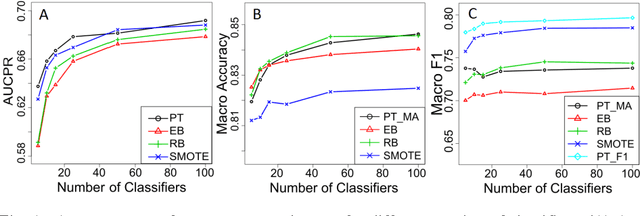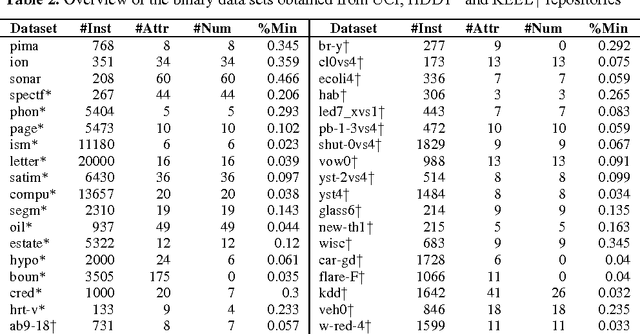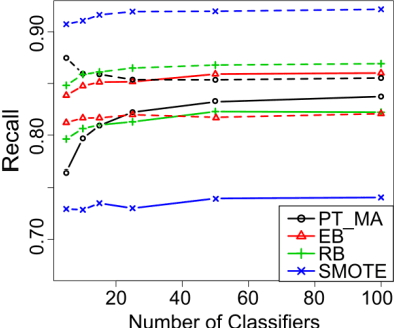Drazen Prelec
Reviving Threshold-Moving: a Simple Plug-in Bagging Ensemble for Binary and Multiclass Imbalanced Data
Jun 20, 2017



Abstract:Class imbalance presents a major hurdle in the application of data mining methods. A common practice to deal with it is to create ensembles of classifiers that learn from resampled balanced data. For example, bagged decision trees combined with random undersampling (RUS) or the synthetic minority oversampling technique (SMOTE). However, most of the resampling methods entail asymmetric changes to the examples of different classes, which in turn can introduce its own biases in the model. Furthermore, those methods require a performance measure to be specified a priori before learning. An alternative is to use a so-called threshold-moving method that a posteriori changes the decision threshold of a model to counteract the imbalance, thus has a potential to adapt to the performance measure of interest. Surprisingly, little attention has been paid to the potential of combining bagging ensemble with threshold-moving. In this paper, we present probability thresholding bagging (PT-bagging), a versatile plug-in method that fills this gap. Contrary to usual rebalancing practice, our method preserves the natural class distribution of the data resulting in well calibrated posterior probabilities. We also extend the proposed method to handle multiclass data. The method is validated on binary and multiclass benchmark data sets. We perform analyses that provide insights into the proposed method.
A statistical model for aggregating judgments by incorporating peer predictions
Mar 14, 2017



Abstract:We propose a probabilistic model to aggregate the answers of respondents answering multiple-choice questions. The model does not assume that everyone has access to the same information, and so does not assume that the consensus answer is correct. Instead, it infers the most probable world state, even if only a minority vote for it. Each respondent is modeled as receiving a signal contingent on the actual world state, and as using this signal to both determine their own answer and predict the answers given by others. By incorporating respondent's predictions of others' answers, the model infers latent parameters corresponding to the prior over world states and the probability of different signals being received in all possible world states, including counterfactual ones. Unlike other probabilistic models for aggregation, our model applies to both single and multiple questions, in which case it estimates each respondent's expertise. The model shows good performance, compared to a number of other probabilistic models, on data from seven studies covering different types of expertise.
 Add to Chrome
Add to Chrome Add to Firefox
Add to Firefox Add to Edge
Add to Edge